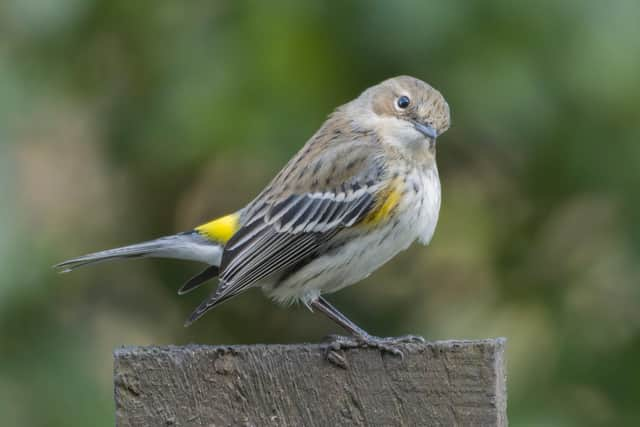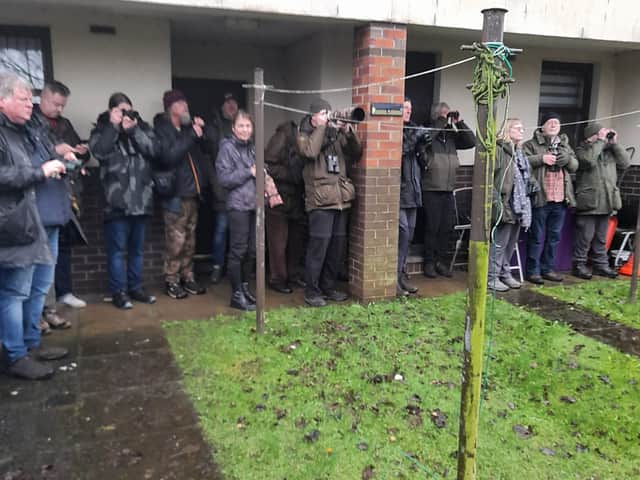Myrtle warbler: Incredibly rare bird sighting attracts hundreds of 'birders' to Scottish garden
and live on Freeview channel 276
A tiny rare bird not seen in the British Isles for a decade has caused a flap in the world of birders - after one appeared in an Ayrshire garden.
A myrtle warbler - a relative of the yellow-rumped warbler - has been frequenting a Kilwinning garden for the last week. The bird is native to the US and is only a rare visitor to Britain and Ireland, with the last recorded sighting on mainland UK thought to have been in 2014 - when one was spotted in County Durham.
Advertisement
Hide AdAdvertisement
Hide AdThere are thought to have been less than 30 sightings of the bird in the UK ever, and the species' latest appearance has attracted hundreds of visitors from as far away as Cornwall. Local amateur photographer and bird fan Stevie Clarke told SWNS his birder friend, Jimmy Crawford, first spotted it last Tuesday (February 20).


"Since then he has kindly allowed bird watchers and photographers to come and see this rare beauty." Mr Clarke had been keen to try and get a few pictures of the rare visitor, and asked his friend if he could put up a "wee perch" for it in the garden.
Their efforts paid off, he said. "I was so excited when the Myrtle warbler posed nicely on it for a few shots."


Mr Crawford said on Tuesday (27 Feb) that the warbler was still present, and still reeling in the crowds. "One guy arrived here this morning at 7am from Cornwall after a 14-hour drive. Driven up just for this. Now that's dedication," he said. "People have travelled from, Wrexham, Warrington, London, Hull, Carlisle, Aberdeen, Stirling, Plymouth, Peterborough, St Andrews, Isle of Mull, all over really, numbers must be up to about 450."
Advertisement
Hide AdAdvertisement
Hide AdMyrtle warblers are sometimes considered a subspecies of the yellow-rumped warbler, or their own species, depending on the classification system used. Besides their vivid yellow markings, the birds have browner plumage during the autumn and winter months, which develops into a striking black and white during the breeding season.
Primarily insectivores, the warblers will partake in myrtle berries during the cold season when insects are hibernating - giving the species its name. Yellow-rumped warblers in general are widespread across much of the US and are classified as of least concern b the International Union for Conservation of Nature (IUCN), with numbers in their native lands actually thought to be increasing.
The myrtle warbler is far from the only rare bird to visit the British Isles over the winter months. Back in January, hundreds of birdwatchers flocked to an Essex garden after a northern waterthrush was spotted - only the eighth time one has ever been recorded in the UK.
Migratory birds, including rarer visitors like the waxwing, landed in the UK in higher numbers than usual this year, in their annual search for food during the cold season. Some avid birdwatchers even suspected that the UK was experiencing an irruption - where birds arrive en masse after food sources fail in their native lands - with Britain instead experiencing a potentially record-breaking bumper crop of winter food sources like hawthorn berries.
Comment Guidelines
National World encourages reader discussion on our stories. User feedback, insights and back-and-forth exchanges add a rich layer of context to reporting. Please review our Community Guidelines before commenting.
